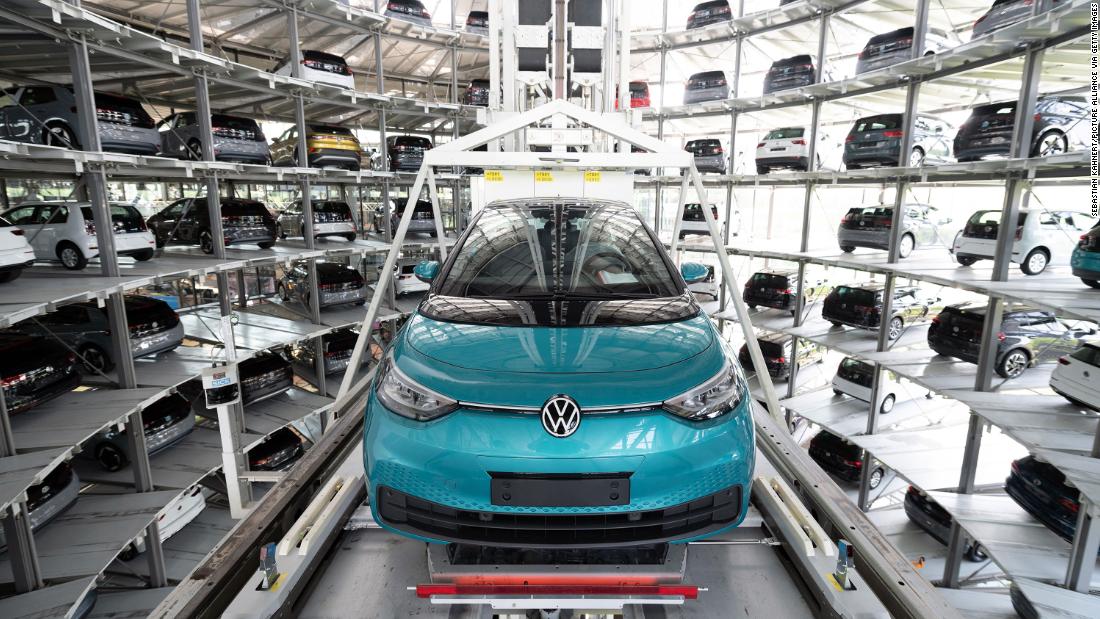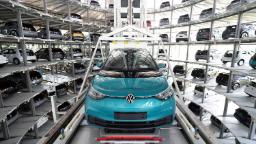“We are not sold out because we can’t build cars … we are really sold out for electric cars because demand is higher than expected,” CEO Herbert Diess told the Financial Times at its automotive conference Monday.
Last week, the company, which owns several brands including Porsche and Audi, said it had a backlog of 300,000 EV orders in Western Europe alone.
Customers placing orders now in some markets can expect to receive their cars next year, a company spokesperson confirmed to CNN Business.
Volkswagen Group sold more than 99,000 electric vehicles globally in the first quarter, up 65% from the same period last year. Its most popular cars included its ID.3 and ID.4 models, and the Audi e-tron.
Volkswagen still trails Tesla, which delivered more than three times as many EVs over the same period.
Supply woes ease up
It may have an opportunity to make up some lost ground later this year as the supply of chips improves. Supply chain disruptions that have blighted the car industry over the past year were starting to ease up, and Volkswagen Group has a “very good semiconductor supply” from the third quarter, Diess said.
Volvo (VOLAF), a Volkswagen Group competitor, also believes the worst of the chip shortage is behind it. CEO Jim Rowan told the FT on Monday that he thinks his company will be “really solid in terms of chip supply” from the second quarter.
The war in Ukraine has compounded supply problems for the automotive sector, leading to shortages of key parts for all vehicles.
But Diess said the company, which has several parts suppliers in Ukraine, still managed to secure about 90% of its supply volumes from those plants.
And despite strict coronavirus lockdowns, demand for EVs within China is proving resilient. Diess said Volkswagen Group EV sales in the world’s biggest car market had quadrupled in the first quarter.
BYD, a Chinese electric vehicle maker, reported a 313% jump in sales across its electric vehicles and plug-in hybrids in April compared with last year. The Warren Buffett-backed company is more insulated than others from supply chain disruptions because it makes its own batteries and automotive chips. Rivals Li Auto and Nio both reported a drop in deliveries in April.
“I’m optimistic that even under these really difficult circumstances with Covid in China, the war in Ukraine and still some semiconductor constraints, 2022 could still be a good year for us and the rest of the industry,” Diess said.
— Laura He contributed reporting.



